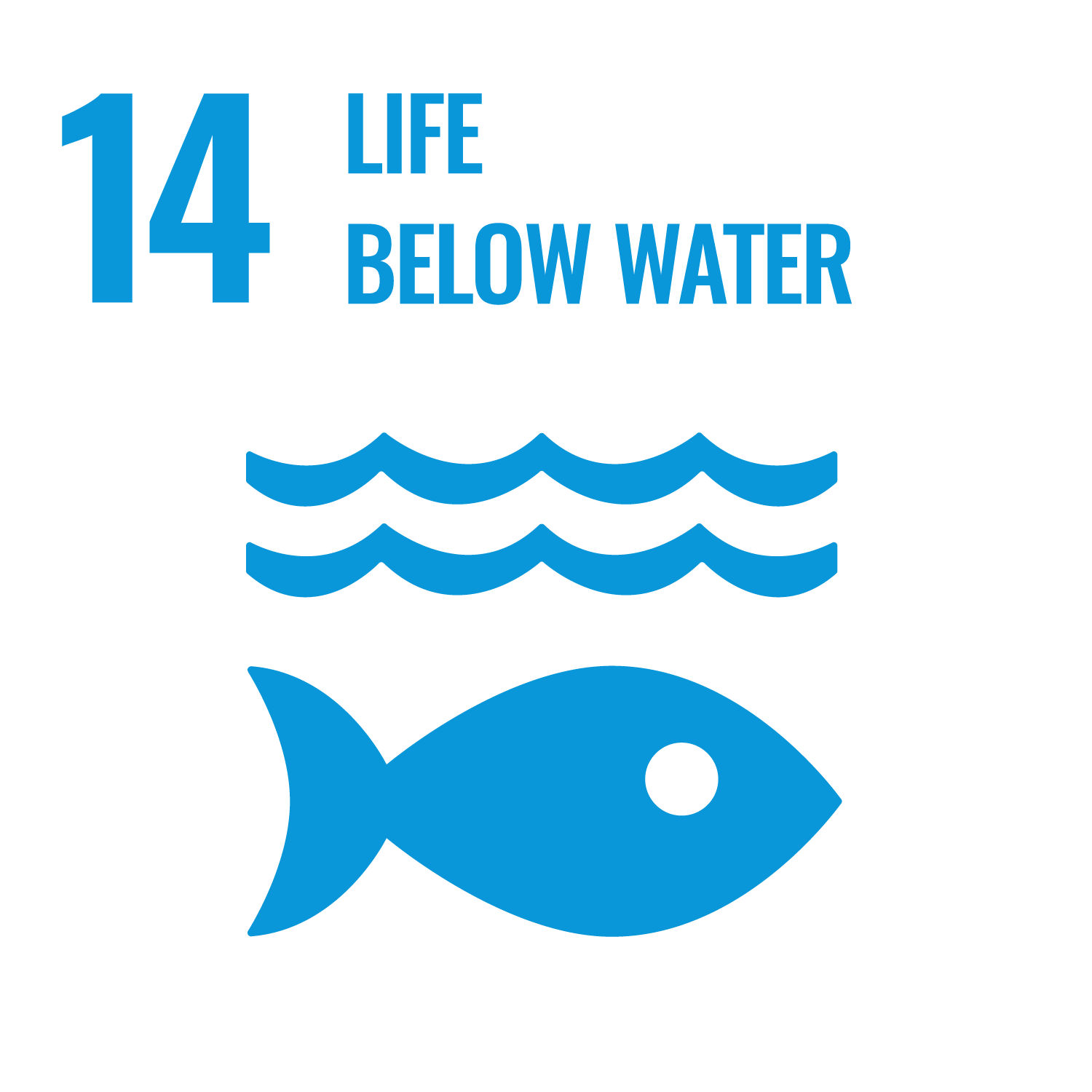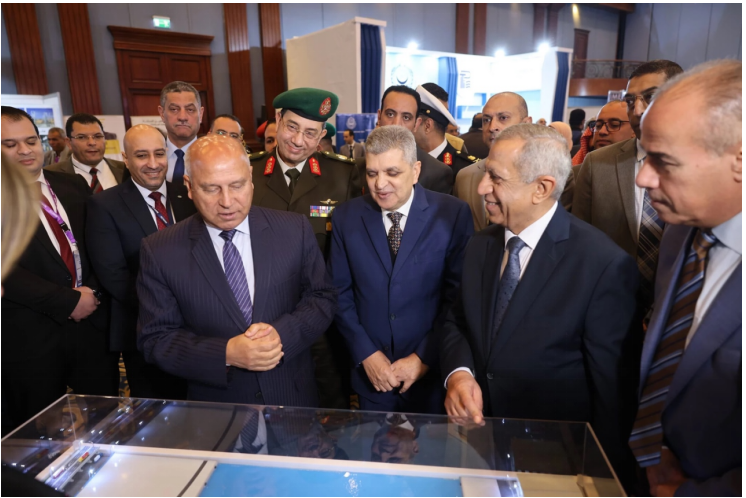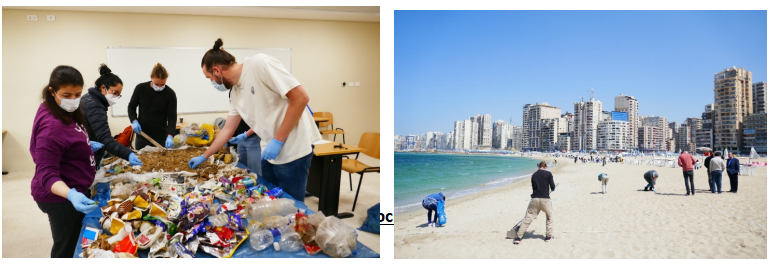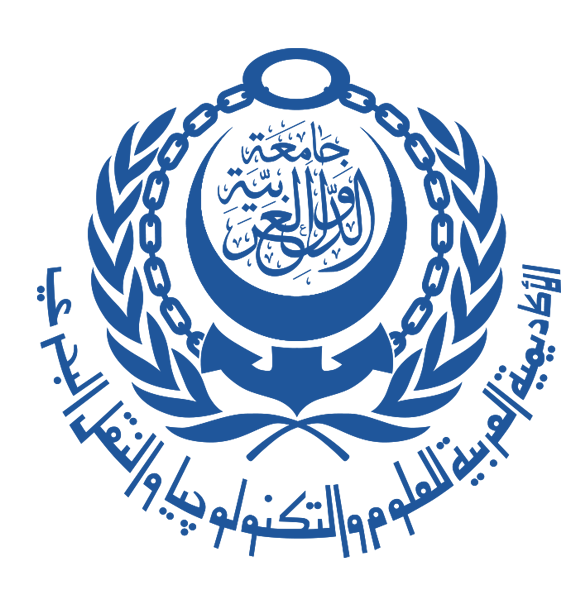 Goal 14. Life Below Water
Goal 14. Life Below Water
14.3.4 Technologies towards aquatic ecosystem damage prevention (direct work) 2022-2023
2023-2024
MARLOG 13. 04th March 2024
The Arab Academy for Science, Technology, and Maritime Transport organized the 13th International Maritime and Logistics Conference (MARLOG 2024). It took place on March 3, 2024, at Hilton Green Plaza Hotel in Alexandria, with the theme of 'Towards smart green blue infrastructure,' in collaboration with Suez Canal Economic Zone (SCZone), the International Association of Ports and Harbors (IAPH), MEDPorts Association, and the Union for the Mediterranean (UfM). The event also involved Valencia Port Foundation, Promotion and Commercial Studies of the Valencian Region (Valencia port Foundation), Antwerp/Flanders Port Training Center, Global Shipping Think Tank Alliance, and The International University of Logistics and Transport in Wrocław, Poland. The conference aims to bring together a diverse group of experts in ports, logistics, sustainability, and technology to discuss the latest developments and trends in sustainable infrastructure.

Center for Innovative Media and Marketing-Alexandria | AASTMT
The TouMaLi Research Project is a comprehensive, multi-year initiative scheduled to run from 2021 to 2025.
Reducing marine litter in Northern Africa—specifically in countries like Algeria, Egypt, Morocco, and Tunisia—is essential for protecting the region’s rich marine ecosystems. The strategy involves implementing sustainable waste management practices, promoting recycling, and encouraging reuse to minimize environmental impact. Key actions include coastal monitoring to track pollution levels, conducting comprehensive pollution assessments, and reviewing existing waste management systems to identify areas for improvement. It also involves implementing legal and technical solutions through close collaboration with local stakeholders, as well as capacity building programs and raising public awareness about marine conservation. In August 2021, a collaborative effort was initiated through the TouMaLi project, launched by the University of Rostock, Leibniz Institute for Baltic Sea Research Warnemünde (IOW), Arab Academy for Science, Technology, and Maritime Transport (AASTMT), along with other partners. This project aims to combat marine litter caused by tourism in Egypt, Morocco, Tunisia, and Algeria. Local partners include AASTMT and various Egyptian ministries, with funding of approximately 4.2 million euros from Germany's BMU, supported by ZUG gGmbH. Ultimately, this initiative is dedicated to advancing Sustainable Development Goal 14—life below water—by addressing the pressing issue of marine litter, especially plastics, to preserve ocean health for future generations.

Link 1: TouMaLi research project (2021-2025)
Link 2: TouMaLi research project (2021-2025)
Link 3: TouMaLi research project (2021-2025)
Link 4: TouMaLi research project (2021-2025)
2022-2023
Initiative: Antifouling Paints:Environmental Hazards and Alternatives (Abu-Qir Bay Fishermen Community Outreach Workshop)
Biofouling is the accumulation of bacterial growth, algae, and sessile invertebrates on any submerged surface. To combat fouling ships must constantly undergo cleaning up and maintenance processes. Protecting boat hulls against biofouling is a compelling necessity, not only to prevent material corrosion and degradation but also to maintain the proper maneuverability of the boats, thereby ensuring safety at sea. Antifouling paints are widely used to counteract this problem, using toxic substances such as copper-containing paints, which negatively impact marine organisms. Raising the awareness of fishermen about this problem and encouraging them to use eco-friendly antifouling paints is of great importance; environmentally and economically. In January 2023, AASTMT as a leading university within the region; represented by the College of Fisheries and Aquaculture Technology, took the initiative to familiarize the local fishermen with the threats and adverse effects of overfishing.
Initiative Scientific Output (The First International Conference of The Institute of Genetic Engineering Research "Challenges and New Prospects in Biotechnology Sciences" At The City Of Scientific Research And Technological Applications)
In Feb. 2023, students at the College of Fisheries and Aquaculture Technology have participated in the First International Conference of the Institute of Genetic Engineering Research "Challenges and New Prospects in Biotechnology Sciences" at the City of Scientific Research and Technological Applications. That was evaluated as the best poster presented at the conference
College of Fisheries Technology & Aquaculture Technology-Alexandria | AASTMT on AASTMT webpage
MARLOG 12. 12th -14th March 2023
The world is facing continuous and different types of challenges, either natural crises such as climate change and other natural hazards that exacerbate climate change or manmade challenges such as conflicts between nations and countries, conflicts in interests between stakeholders, and the rapid changes in types and sizes of vessels and products and size of trading between countries. These challenges are growing and accelerating with time and driving the world to go through critical stages in the global economy in general and port and supply chains, which drives strongly to search for innovative and effective solutions to face the challenges and ensure the continuity of maritime transport and port productivity and competitivenessThe The crises and challenges during the last few decades led to negative consequences on the global economy and particularly a huge impact on supply chains, logistics, and ports, which emphasize the importance of adopting integrated solutions and applying effective measures to adapt to such challenges and rational risk management. Furthermore, the challenges facing the world reflect the significance of implementing resilient strategies that ensure the ability to sustain logistics business and port services efficiency.
The mitigation of different crises can be achieved through different aspects and one of these aspects is modern technologies and promoting innovation. Relying on modern technologies and promoting innovation are the key drivers for achieving a resilient future for ports and the logistics industry. This requires synergies between decision-makers, academic researchers, stakeholders and the whole port and logistics community. It also requires effective communication, exchange of knowledge and best practices.
MARLOG 12 sheds light on the importance of innovation, modern technologies, and their role in a sustainable, resilient future for the port community and maritime industry.
MARLOG 11 20th -22nd March 2022 on AASTMT webpage
MARLOG 11 20th -22nd March 2022 on AASTMT webpage
TouMaLi Research Project (Still in progress)
Reducing Tourism Marine Litter in Northern Africa through the Contribution of a Sustainable Waste Management System (Algeria, Egypt, Morocco, and Tunisia) and to recycle and reuse the unavoidable waste to reduce overall marine and beach littering sustainably. Primary activities are the development and implementation of a coastal monitoring program; the definition of a pollution baseline as well as marine litter pollution assessments; the evaluation of solid waste management and current mitigation measures; the analysis, implementation, and monitoring of legal, organizational, financial, and technical solutions and measures with local, regional and national actors; and the provision of capacity building and awareness raising in the regions.
In August 2021, the University of Rostock and the Leibniz Institute for Baltic Sea Research Warnemünde (IOW), together with the Arab Academy for Science, Technology and Maritime Transport (AASTMT) and other partners including think tanks as well as universities and ministries from the project region, started a research project on Marine Litter caused by the tourism industry in Egypt, Morocco, Tunisia and Algeria called TouMaLi. Arab Academy for Science, Technology, and Maritime Transport (AASTMT) participated in this research as the local project partner in Egypt. Complimentary Egyptian Ministries for Environment, Local Development, and Tourism are involved. The project aims to develop and establish sustainable waste management solutions in the tourism sector to protect the marine ecosystems of the Middle East and North African (MENA) region. The German Federal Ministry for the Environment, Nature Conservation and Nuclear Safety (BMU) is funding the project with about 4.2 million euros from the "Funding Programme against Marine Litter". “Zukunft – Umwelt – Gesellschaft (ZUG) gGmbH“ supports the Federal Ministry in implementing its funding policy aims.
The Mediterranean Sea is one of the most polluted marine environments in the world. According to the European Parliament, about 730 tonnes of litter are discharged daily, most of which consists of plastics. So far, monitoring of inputs and research on the exact impacts and long-term effects are limited. However, negative impacts on marine wildlife, human health, climate, and the economy have already been proven.
The countries belonging to the MENA region, Egypt, Algeria, Morocco, and Tunisia, have a very high plastic waste generation. This is partly caused by tourism, which significantly contributes to local waste generation. A consortium of ten institutions from science think tanks and private companies will address this challenge in the TouMaLi research project. The German partner consortium includes next to the University of Rostock and the Institute for Baltic Sea Research, also three companies with an excellent reputation, named Adelphi gGmbH, Black Forest Solutions, and the Landbell Group. The project's overall objective is to minimize the share of tourism waste in the target regions. This will be achieved by implementing the framework conditions needed to avoid and recycle waste as much as possible, thereby sustainably reducing the total amount of marine and beach litter.
Therefore, the project's subject is developing an assessment system for marine litter pollution based on monitoring beach litter and evaluating current waste disposal. Adding to that is the analysis, implementation and monitoring of legal, organizational, financial and technical solutions and measures with local, regional and national actors. Awareness-raising is another crucial activity to achieve long-term, self-sustaining monitoring by local actors.
The project implementation focuses on designated pilot regions in the project countries, which are to become exemplary for more comprehensive national implementation after the end of the project.
AASTMT, as the academic and scientific arm of the Arab League with seven sites in Egypt and the headquarters located in Alexandria, the most populated tourist city on the Mediterranean, is looking forward to effectively cooperating with the University of Rostock and all partners to achieve the different objectives and outcomes of the project. We target to involve all national stakeholders in the tourism and waste management sector for the project's great success. Additionally, all national and international stakeholders engaged in the area that aims to target the issue of marine litter are invited to participate in the project activities.
In March and April 2022, the Arab Academy and the IOW teams, supported by several local students and volunteers, surveyed several beaches around Alexandria and Marsa Matrouh.
The beaches sampled were a mix of private and public beaches. Furthermore, marinas were also examined to gain more knowledge about the overall pollution status and to assess litter emissions. Regarding beach pollution, more than 25.000 litter pieces were collected and analyzed. A preliminary assessment of the sources of pollution indicates that many of the plastic bags, candy wrappers, straws, and food packaging originate from tourism and beach
users.
Link
1: TouMaLi research project (2021-2025)
Link 2: TouMaLi
research project (2021-2025)
Partner structure in the TouMaLi project on TouMaLi webpage
Learn more about the international TouMaLi conferences on TouMaLi webpage
Tunis International Centre for Environmental Technologies (CITET) on TouMaLi webpage
AASTMT Funds Research Projects Serving SDG14, Like “Blue Carbon Projects”, Which Started In March 2021 and Working on Still in Progress
Coastal ecosystems are critical to maintaining human well-being and global biodiversity. In particular, mangrove forests provide numerous benefits and services that are essential for climate adaptation and resilience, where they help mitigate climate change by sequestering and storing significant amounts of carbon (blue carbon) from the atmosphere and oceans. To explicitly address the role of blue carbon ecosystems in climate change mitigation and human wellbeing through policy, regulatory, finance, or other mechanisms, the carbon stock in these ecosystems and the current or potential carbon emissions from changes to those ecosystems must be quantified. In light of the limited studies in the literature that connects the recent reliable estimates of carbon emissions and their relation to the mangroves on the Egyptian Red Sea coast, the overall objective of this project is to facilitate development in the area, restore mangrove ecosystems, enhance ecosystem services (including carbon sequestration), promote sustainable mangrove related income, and act as a model for future projects. This project aims to create a carbon inventory for mangrove beds at selected locations along the Red Sea coast of Egypt.
Blue Carbon projects on AASTMT webpage



